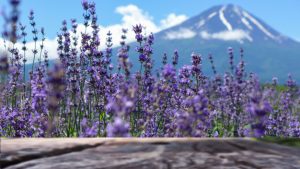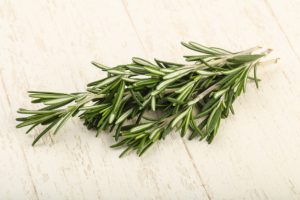Do you often get headaches? The cure might be right outside your door. You can grow at-home headache cures in your very own herb garden. In fact, you might have one or two of these already on hand right out your window.
RELATED POST: 10 Must-Have Herb Garden Plants
About Headaches:
Headaches usually present in various forms and intensity—which then makes it crucial for anyone suffering the pain to first establish the trigger factor before settling for a given treatment method.
The different types and causes of headaches include:
Cluster headaches—This type of headaches usually occur in a series and are characterized by some piercing pain (normally on one side of the face).
Migraines—These headaches are often intense, throbbing, and usually affect one side of the head. In most cases, they’ll make you become highly sensitive to sound and light.
Tension-type headaches—They’re known to cause mild to moderate pains which go away with time.
Sinus headaches—They usually present with a deep and constant pain; which you’ll most likely experience on your forehead or sometimes on your nose’s bridge. You’re likely to experience nasal congestion in addition to the headaches, which is a telltale sign that it’s sinus-related. This is because sinus headaches are often as a result of inflammation of the sinuses (cavities in the head).
Hormone headaches—These are usually triggered by hormone fluctuations (the imbalance between estrogen and progesterone hormones). You’re likely to experience this type of headaches during your menstrual cycle, menopause or even in pregnancy.
Knowing your headache type becomes key in finding the right treatment, as you know, every herb works differently with regard to the type of pain you’re exposed to.
6 HERBAL AT HOME HEADACHE CURES:
Here are some of the herbs you can consider when the headaches take a toll on you:
Lavender
This herb is very effective with regard to the treatment of stress-related headaches. Its anti-inflammatory properties not only help with overall body relaxation but can also be used to treat minor burns.
Lavender is also responsible for the regulation of serotonin levels thus promoting good appetite and sleep.
You can apply the oil on your skin (if it’s a headache then you have to massage your forehead with the oil) or simply use it as a diffuser—whereby you just smell it and the headache melts way.

Verbena
This herb penetrates deep into your nerves to soothe and calm the entire nervous system. It’s therefore, suitable for tension/stress-related headaches.
You can always make verbena (also called vervain) tea and sip slowly to ease the headaches. However, be careful as its consumption has been confirmed to trigger allergic reactions in some people.
Also, remember that too much of verbena intake can lead to unpleasant side effects like vomiting. A very little bit of this goes a long way!
Rosemary
Apply rosemary oil directly to your skin. This helps improve your blood flow. It also eases muscle pain that’s always associated with headaches, among others. In fact, it works well for the cluster type of headaches.
Sipping rosemary tea also helps keep the headaches at bay.

Feverfew
Feverfew contains parthenolide—a chemical that helps to soothe smooth muscle spasms and also prevents dilation of the blood vessels. This, in turn, helps combat migraines and other types of headaches like cluster headaches.
Note: Blood vessel dilation often triggers the piercing pain that usually presents with migraines, and so, taking feverfew greatly helps to soothe the pain.
Catnip
You can drink catnip as tea. Or, you can also simply apply it direct to your skin (in this case, as catnip oil). Its helps you relax, making it great for tension-related headaches. You can also use it to relieve stress.
Clary Sage
An often overlooked, but extremely effective, herbal remedy is clary sage. Massage clary sage essential oil on your temples. The soothing massage motion and the fragrant oil are especially effective at treating hormonal headaches as well as alleviating hot flashes that go along with hormonal changes.

The Takeaway
Other remedies to treat headaches. But natural, home-made remedies remain the best way to calm these pains. Especially when you consider that you can grown them at home.
It’s surprising how most of these herbs turn out. Besides their medical traits, they are also beautiful landscaping items.
Note: Don’t be scared to take a combination of two or even three herbs since this can also enhance your healing. However, exercise caution when doing that.

